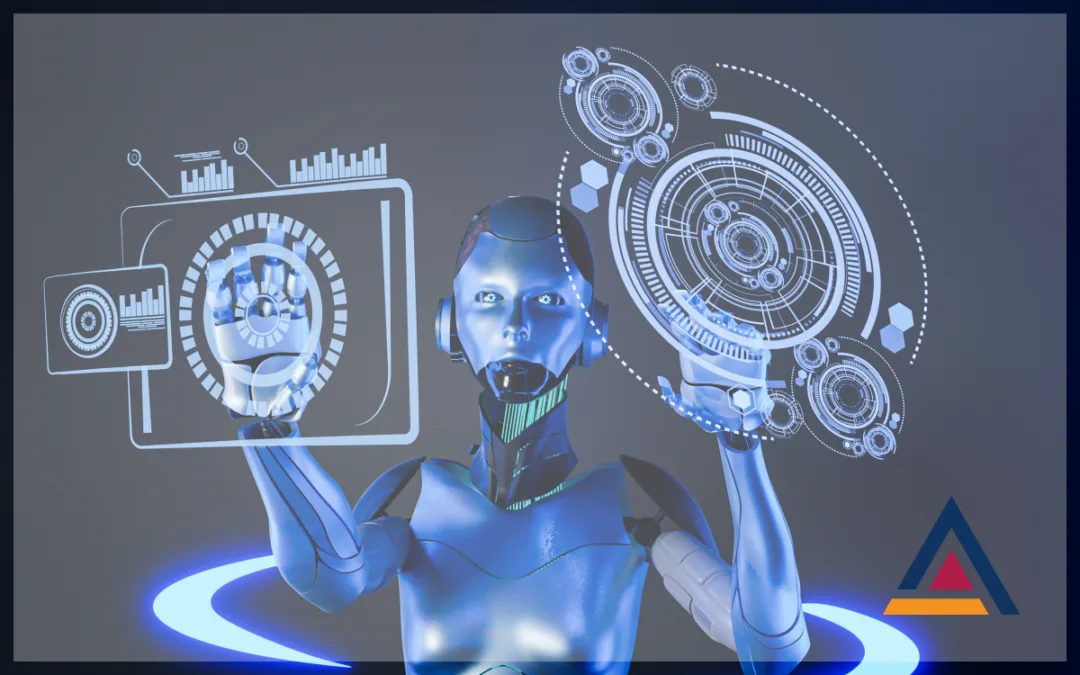In the ever-evolving landscape of technology, few innovations have captured the collective imagination quite like Artificial Intelligence (AI). From science fiction dreams to real-world applications, AI has rapidly progressed from a futuristic concept to an integral part of our lives. In this blog, we’ll delve into the realm of AI, exploring its transformative impact across various sectors and shedding light on its potential for shaping our future.
The Foundation of AI
Artificial Intelligence refers to the simulation of human intelligence in machines that are capable of performing tasks that typically require human cognitive functions. At its core, AI is built on the foundation of machine learning, a subset that enables machines to learn from data and improve their performance over time without explicit programming. This unique ability to adapt and learn makes AI a powerful tool for tackling complex challenges.
Revolutionizing Healthcare
One of the most significant impacts of AI can be seen in the field of healthcare. AI-powered diagnostic tools, such as image recognition algorithms, are revolutionizing medical imaging by accurately identifying anomalies and diseases from X-rays, MRIs, and other scans. Additionally, predictive analytics driven by AI are being used to forecast disease outbreaks, optimize patient treatment plans, and enhance drug discovery processes.
Enhancing Everyday Life
AI has seamlessly integrated into our daily routines, enhancing convenience and efficiency. Virtual assistants like Siri, Alexa, and Google Assistant have become commonplace, making tasks like setting reminders, answering questions, and controlling smart devices a breeze. Furthermore, AI-driven recommendation systems in streaming platforms and e-commerce websites personalize content and product suggestions, transforming the way we discover entertainment and shop online.
Transforming Industries
Industries across the board are undergoing a profound transformation thanks to AI. In manufacturing, AI-driven automation is streamlining production processes and improving product quality. The financial sector benefits from AI algorithms that detect fraudulent activities and make informed investment decisions. Transportation is experiencing a shift towards self-driving vehicles, promising safer roads and reduced congestion.
Ethical and Societal Considerations
As AI continues to make leaps and bounds, ethical considerations become paramount. The potential for biased algorithms, job displacement due to automation, and data privacy concerns pose challenges that demand careful attention. Striking a balance between technological advancement and responsible deployment is crucial to ensure that the benefits of AI are enjoyed by all while minimizing its downsides.
The Road Ahead
The journey of AI is far from over. Researchers are pushing the boundaries of AI, exploring areas like explainable AI (XAI) to make AI decisions more transparent and understandable. Quantum computing could unlock new possibilities by exponentially increasing the speed of AI computations. Additionally, interdisciplinary collaborations between AI experts and professionals from various fields will foster innovative solutions to global challenges.
Embracing AI for a Human-Centric Future
As AI continues to shape the world around us, it’s crucial to maintain a human-centric approach. While the technological marvels of AI are awe-inspiring, the heart of its success lies in its ability to improve human lives. To ensure that AI serves humanity’s best interests, several key principles must be upheld:
Ethical AI Development
The ethical development of AI involves designing algorithms that are fair, unbiased, and transparent. Efforts to eliminate discriminatory biases in AI systems are essential to prevent perpetuating social inequalities. This involves diverse teams working on AI development and robust testing to uncover and rectify biases.
Education and Collaboration: As AI evolves, educating the public becomes paramount. Demystifying AI and its capabilities can empower individuals to make informed decisions about its use. Cross-disciplinary collaboration between technologists, policymakers, ethicists, and researchers can foster holistic solutions that address the multi-faceted challenges AI presents.
Data Privacy and Security
AI’s power is derived from data, and safeguarding the privacy and security of this data is non-negotiable. Stricter regulations, such as GDPR, and the responsible handling of data are crucial for maintaining public trust in AI applications. Users must have control over their data and be informed about how it’s being utilized.
AI Augmentation, Not Replacement
The fear of job displacement due to AI is valid, but a more optimistic approach is possible. Rather than viewing AI as a threat, we can embrace it as a tool for augmentation. AI can handle repetitive and data-intensive tasks, allowing humans to focus on creativity, critical thinking, and empathy-driven roles.
Continual Learning and Adaptation
Just as AI learns from data, humans must engage in continual learning to keep up with the evolving landscape. This involves upskilling and reskilling the workforce, enabling them to collaborate with AI and harness its capabilities effectively.
The Intersection of AI and Humanity
AI’s journey is intrinsically linked to humanity’s journey. It’s a narrative of progress, innovation, and challenges overcome. The fusion of human ingenuity and AI’s computational power has the potential to tackle some of the world’s most pressing problems, from climate change to healthcare accessibility.
In understanding AI’s potential, it’s essential to strike a balance between optimism and realism. The possibilities are vast, but they are accompanied by responsibilities. As AI permeates our lives, its true potential will be realized when it aligns with our values, amplifies our capabilities, and propels us towards a future where technology empowers and uplifts every individual.
Final Thoughts
The revolution that AI has ushered in is not just about the technology; it’s about how we choose to wield this power. With great power comes great responsibility, and the responsible and thoughtful integration of AI into our world will define our future. Understanding AI is not just about comprehending algorithms and neural networks; it’s about grasping the profound ways in which technology and humanity coalesce to drive progress.
As we continue to explore the depths of AI’s capabilities, let’s remember that at its core, AI is a tool—a remarkable one, yes, but still a tool. The transformation it brings lies not only in its computational prowess but in its ability to inspire us, challenge us, and ultimately, lead us towards a world where innovation and humanity thrive hand in hand.

